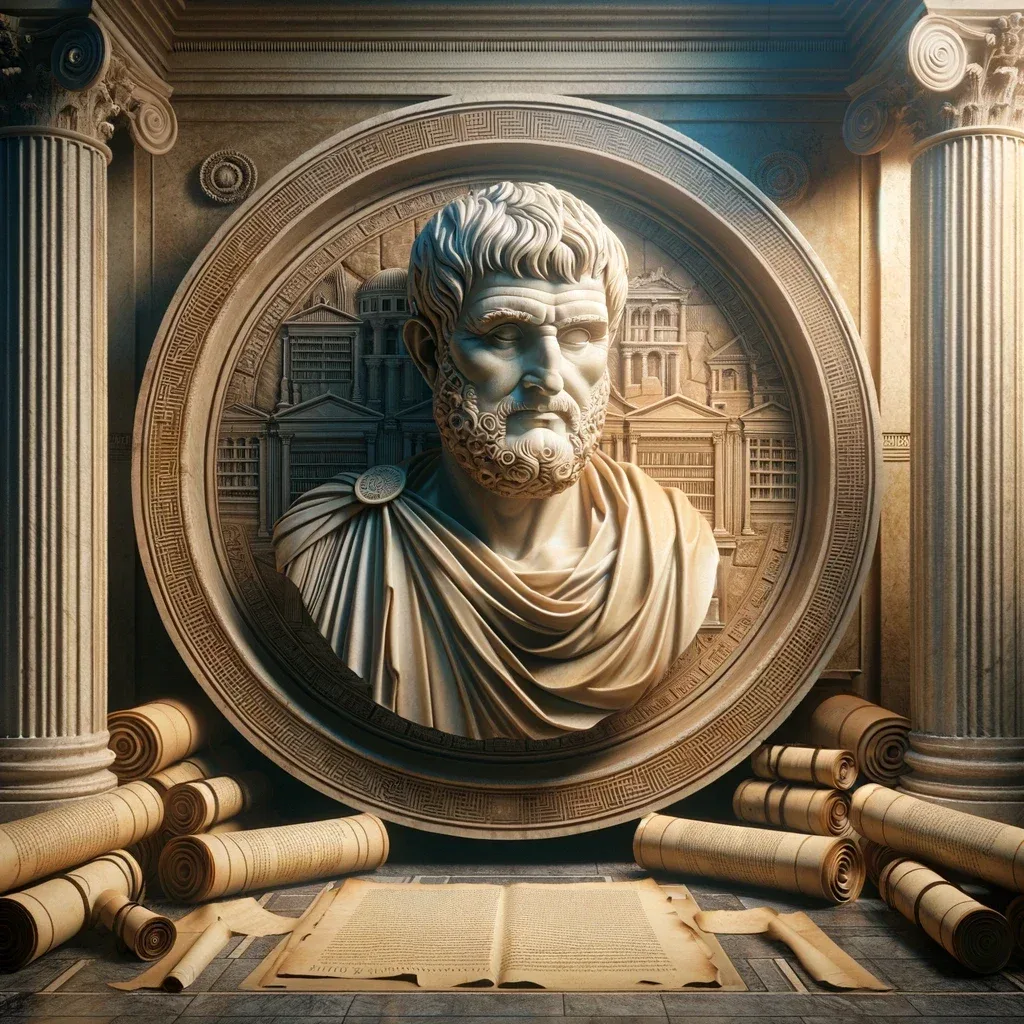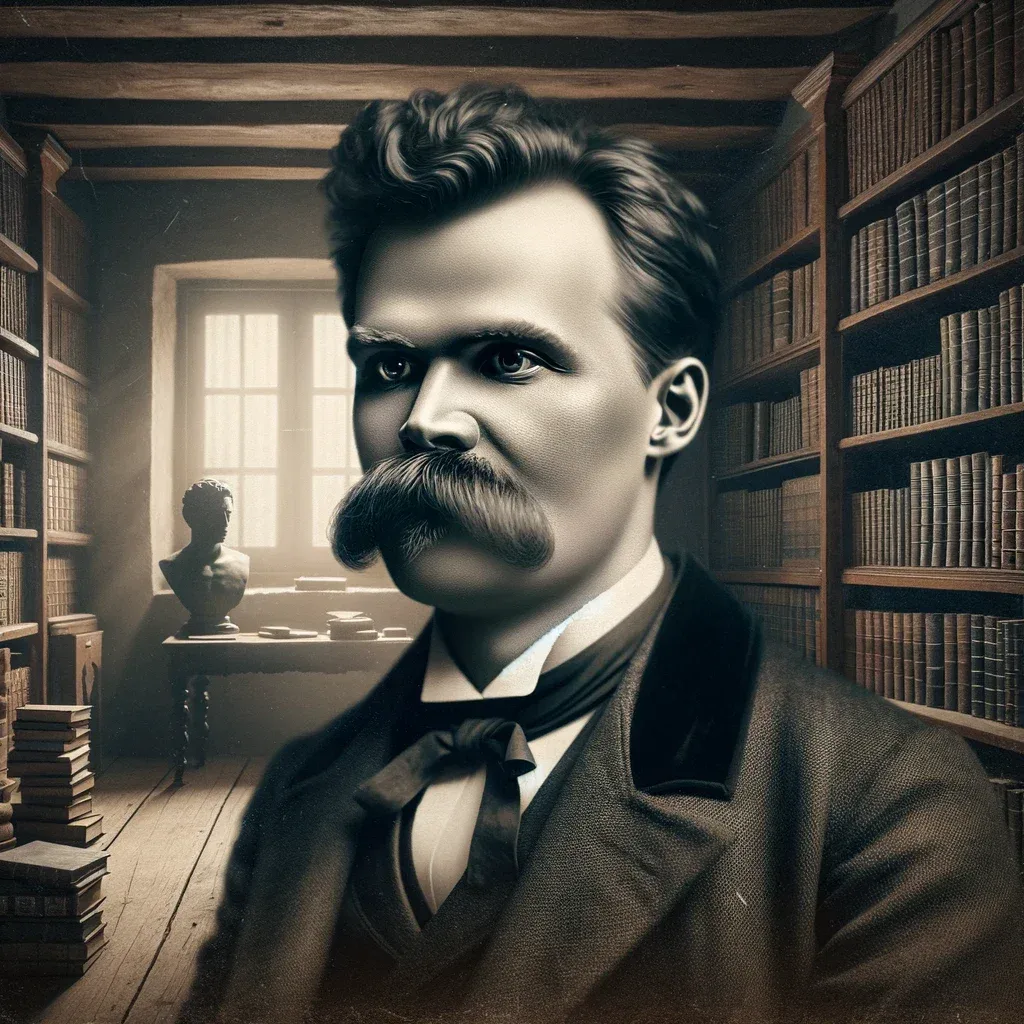To imagine a conversation between Friedrich Nietzsche and Lucius Annaeus Seneca, two prominent figures in philosophy, is to delve into a fascinating dialogue between two distinct philosophical worlds. Nietzsche, an icon of modern philosophy known for his provocative style and his critique of traditional morality, and Seneca, one of the most famous philosophers of Stoicism, represent two contrasting points of view on life, ethics and human nature. This article explores what an imaginary meeting between these two thinkers would be like, highlighting their similarities, differences and the potential topics of discussion that could emerge in such a dialogue.

Historical and Philosophical Contextualization

The Ages of Nietzsche and Seneca
Nietzsche, working in the XNUMXth century, and Seneca, in the first century AD, come from historical periods with different worldviews. Nietzsche experienced the rise of modern science and the decline of religious influence, while Seneca lived in an expanding Roman empire, deeply rooted in traditions and political structures. These distinct contexts shaped their philosophies in unique ways.
Contrasting Philosophies
Nietzsche is often remembered for his ideas about the Übermensch and the will to power, challenging conventional notions of morality. Seneca, as a Stoic, emphasized virtue, self-control and living in harmony with nature. The contrast between Nietzsche's radical individualism and Seneca's stoic focus on natural order and rationality would be a key point in any dialogue between them.
Contributions to Modern Philosophy
Both philosophers left lasting legacies, influencing modern thought in significant ways. While Nietzsche questioned the foundations of morality and religion, Seneca offered insights into human resilience and practical ethics. A conversation between them would undoubtedly have explored these contributions.
Potential Topics of Discussion

About Morality and Ethics
A likely theme would be the nature of morality. While Nietzsche could argue that morality is a social construct that restricts human freedom, Seneca could argue that morality is essential to living a good and virtuous life.
Human Nature and Suffering
Another topic would be human nature and the role of suffering. Nietzsche saw suffering as a crucial part of human development, while Seneca saw suffering as something to be overcome through reason and self-control.
Power, Politics and Society
Nietzsche and Seneca had different views on power and politics. While Nietzsche emphasized the will to power and the transgression of social norms, Seneca defended duty and moral responsibility, even in political settings.
Philosophical Similarities

Criticism of Social Conventions
Both criticized the social conventions of their times. Nietzsche challenged religious and moral norms, while Seneca criticized Rome's corruption and moral decadence.
The Search for Truth
Nietzsche and Seneca shared a commitment to the search for truth. Both were skeptical of established norms and encouraged a deep examination of values and beliefs.
The Importance of Autonomy
Autonomy is a central theme for both Nietzsche and Seneca. Both valued self-realization and individual independence in the face of social and political pressures.
Philosophical Differences

View on Religion
While Nietzsche was famously critical of religion, especially Christianity, Seneca, despite questioning certain religious practices, maintained
He had a more moderate view, incorporating religious aspects into his Stoic philosophy.
Approaches to Life and Destiny
Nietzsche emphasized creating one's own values and rejecting a predefined destiny, while Seneca believed in destiny and accepting the natural order of things.
Optimism vs. Pessimism
Nietzsche is often seen as a pessimistic philosopher, highlighting the darker side of human nature, while Seneca offered a more optimistic and practical view of how to live a virtuous life.
Conclusion
An imaginary conversation between Nietzsche and Seneca would be an extraordinary meeting of minds, covering topics from morality and ethics to human nature and politics. The differences in their philosophies would illuminate the spectrum of human thought and offer valuable insights into how different eras and contexts influence philosophical thought. At the same time, their similarities would reinforce the idea that, despite temporal and ideological differences, certain questions and searches are universal in the human journey in search of wisdom and understanding.
Frequently Asked Questions about the Imaginary Conversation between Nietzsche and Seneca
Here are some of the most frequently asked questions about the imaginary meeting between Friedrich Nietzsche and Lucius Annaeus Seneca, addressing their philosophies, similarities, differences and the impact a dialogue between them could have.






